Omani Foreign Minister In Tehran To Hold Talks
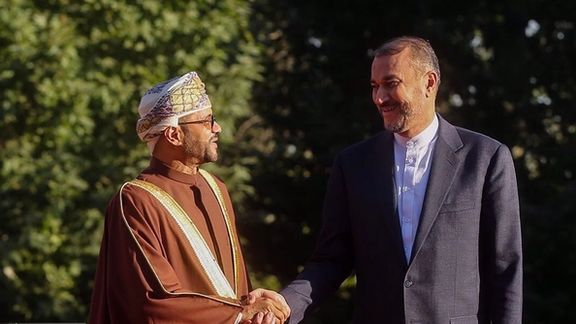
Oman’s Foreign Minister who is in Tehran for talks with the Islamic Republic authorities, met his Iranian counterpart Hossein Amir-Abdolahian on Monday.

Oman’s Foreign Minister who is in Tehran for talks with the Islamic Republic authorities, met his Iranian counterpart Hossein Amir-Abdolahian on Monday.
Iranian media said the latest mutual, regional and international developments would be top on the agenda during Sayyid Badr Albusaidi’s meeting with Iranian officials.
As part of his weekly press conference on Monday, Iranian Foreign Ministry spokesman Nasser Kanaani described Oman as a friendly country and a partner in regional affairs.
“Oman has always played a constructive role in international issues of common concern,” he added.
Oman has traditionally been an interlocutor between the West and the Islamic Republic, and has mediated the release of several foreign citizens and dual nationals held hostage by Iran.
Last month, Oman's foreign minister told Al-Monitor that Washington and Tehran are ironing out the details on a deal to release the prisoners.
There is a battle raging over the fate of Americans Siamak Namazi, Emad Shargi and Morad Tahbaz, who are imprisoned in Tehran's notorious Evin Prison on trumped-up espionage charges that the United States says are unfounded.
In his interview, Albusaidi noted that both sides appear serious about reaching an agreement on the nuclear issue.
Under a reported mechanism, Iran would be allowed to access funds frozen in South Korean banks because of US sanctions for humanitarian procurements only.
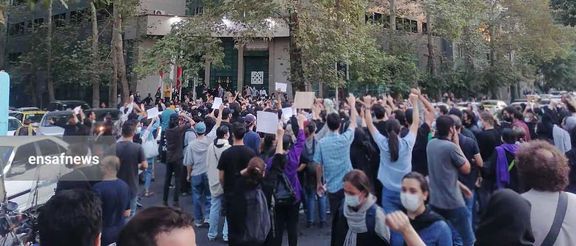
Some Iranian analysts and politicians continue criticizing the ruling establishment, within the limits of controlled media, for the country’s multiple crises.
However last week, prominent economist Mehdi Pazouki told Didban Iran website that government officials have humiliated the nation in the name of their revolutionary approach. Pazouki said, in an unprecedented and daring statement, "One of Khomeini's mistakes was allowing clerics to intervene in the country's social and executive affairs."
He was referring to the founder of the Islamic Republic, Ayatollah Ruhollah Khomeini who after the 1979 revolution gradually expelled independent-minded people from the government and increasingly relied on clerics that he knew had no experience in running a country.
Pazouki added that Iranian clerics can do their biggest service to Islam by migrating back to the seminaries. He further criticized officials for their lack of discipline in foreign relations and administrative affairs and said that as a result of government policies, banking in Iran lags behind other countries by at least 40 years.
Ahmad Alirezabeigi, a member of the Iranian parliament who is known for disclosing a major bribery case involving at least 75 other lawmakers and a former Industry Minister, accused officials of evading their responsibility and adding insult to injury by making statements that blame the people for the government's shortcomings.

He further accused state officials of mismanaging resources and failing to provide the conditions for the minimum means of livelihood. Alirezabeigi added that government policies stifle investments and make the economy more dependent on state enterprises.
While the country is suffering from energy and water shortage, the government creates obstacles for investment in these areas. It wants to do everything by itself but is incapable of completing any project.
This approach will inevitably lead to capital flight from the country, and add to public discontent.
Criticizing the government's economic policies, economist Pazouki highlighted the fact that Iran’s currency has lost its value 12-fold in five years, bringing inflation and misery to the people. He argued that government foreign and domestic policies have stifled an export-oriented economy.
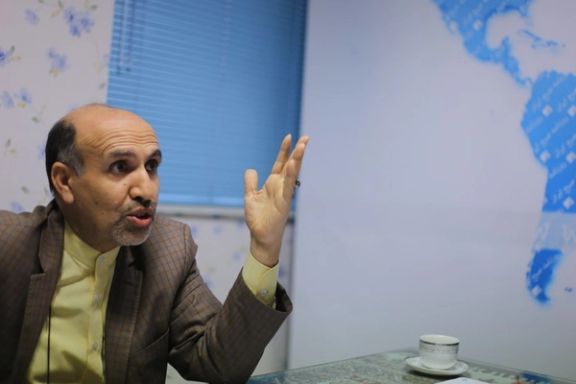
As a result, the government is spending more than its income leading to a huge budget deficit. "The main problem is in our governance. Our economy is hostage to our pending political decisions," he said, adding that although there are so many capable individuals in Iran, most current officials are much less qualified than former statesmen."
As an example, he said: "Just compare the current foreign minister to his predecessor, and you will find out that we have gone back by at least 40 years.
Expounding on the causes of Iran's rising inflation, Pazouki said: "Last year, Iraq sold $120 billion of oil while Iran's oil export was less than a quarter of that, and we still have not repatriated the money for the oil we have sold." He added: "We are likely to have even more problems if we refuse to come to terms with the world and follow a reasonable foreign policy," referring to the nuclear dispute with the West and crippling US sanctions.
In another developing, offering a way out of the problem, political commentator Abbas Abdi suggested that the government should find out about the true public mood and what ordinary people say.
“Send your agents to mingle with the people on the buses, subways, in the bazaar and shopping centers to talk with citizens and record what they say about their problems and needs.”
Abdi likened the perception of officials about the problems of ordinary folks to the elephant in the darkroom analogy in which everyone has a different perception of the elephant. Abdi suggested: "Turn the lights on and see the elephant!"
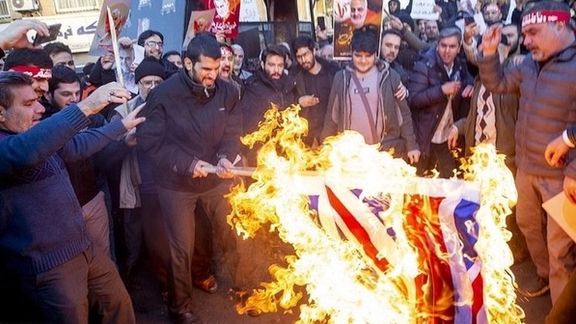
A group of UK politicians have written to Foreign Secretary James Cleverly calling on the government to adopt more stringent measures against Iran.
“Iran is the Middle East’s largest, most aggressive power, with an obvious commitment to revising the global order, with a growing alliance with Russia and a desire to deepen it," read the letter by a group of prominent British figures, including two former defense ministers, a former leader of the Liberal Democrat party, and the current chair of the parliamentary committee on foreign affairs.
The signatories included Menzies Campbell, former leader of the Liberal Democrats, Michael Fallon, former defense secretary, Alicia Kearns, chairwoman of the Commons Foreign Affairs Select Committee, General David Richards, former chief of defense staff, George Robertson, former NATO secretary general, and Mark Sedwill, former national security adviser and former cabinet secretary.
The letter highlighted Iran’s increasing audacity in its pursuit of international disruption and condemns its human rights record, nuclear program acceleration, support for proxies in the Middle East, assistance to Russia in the Ukraine conflict, and sponsorship of terrorism and kidnapping, stating that these actions contribute to Iran’s status as a clear threat to international stability and necessitate a robust response from the UK and its allies.
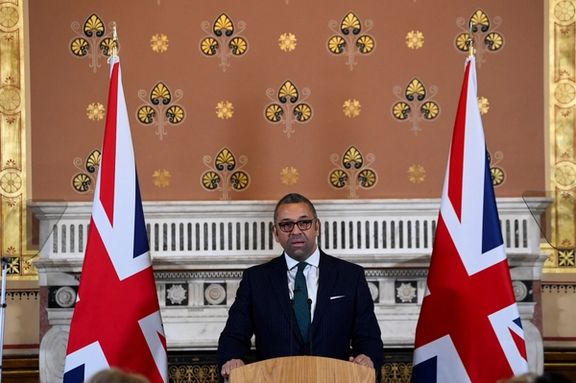
In the letter, they backed the analysis and recommendations of a report from the British conservative think tank Policy Exchange, which argues that treating Iran’s nuclear ambitions in isolation from broader security concerns is a failure of Western policy, urging a comprehensive approach to deal with the regime.
"The most obvious failure of western policy, and particularly British and European policy, has been to compartmentalize the nuclear issue diplomatically and then treat this as the central policy issue in relations with Iran,” read the report.
Stressing the need to view the nuclear program within the context of Iran’s wider aspirations and aggressive behavior, the think tank said, "Nuclear developments, while an important part of the package, must be situated within a more comprehensive understanding of the wider threat posed by Iran. Iran policy, meanwhile, must begin with the strategic threat that Iran poses, not the single, symptomatic element that is its nuclear program.”
The report also claimed that in the 2010s, the Islamic Republic shifted from a defensive strategic posture to an expansionist one, warning that “Iranian expansion across the Middle East will continue unless there is a Western – and indeed a regional Arab – policy change.”
Referring to the regime’s links to proxies in Iraq, Syria, Lebanon, and Yemen, as well as relationships with Palestinian Islamic Jihad (PIJ) and Hamas, the report argued: “The longer Iranian regional expansion is left unchecked, the more Iran will cement its hegemony over significant parts of the Levant, Iraq and the southern Arabian Peninsula, intensify its efforts to undermine and eventually destroy Israel and expand its presence beyond the Middle East.”
Moreover, the report argues that the UK government should be doing more to counter both overt and covert regime’s operations within Britain, to "prevent assassinations and kidnappings in the UK, including by tasking the Joint Terrorism Analysis Center and National Crime Agency’s intelligence capabilities, along with MI5 and MI6 to hire more Persian analysts and better fuse MI5, MI6, and NCA capabilities".
Rooting for tougher sanctions on Iran and a crackdown on its illicit finances as well as disrupting the regime’s relations with Russia, the report called for the UK government to trigger the snapback process of the Joint Comprehensive Plan of Action (JCPOA), also known as the 2015 Iran nuclear deal, to isolate the regime and gain international support for an anti-Iranian coalition.
“Iran will soon expand its support to Russia’s war in Ukraine. Having already transferred drones to Russia, Iran is likely soon to begin transfers of advanced ballistic missiles to the Kremlin,” the report underlined, forewarning of the sanctions on Iran’s ballistic missile exports that will lapse in October under the JCPOA, if the snapback is not applied.
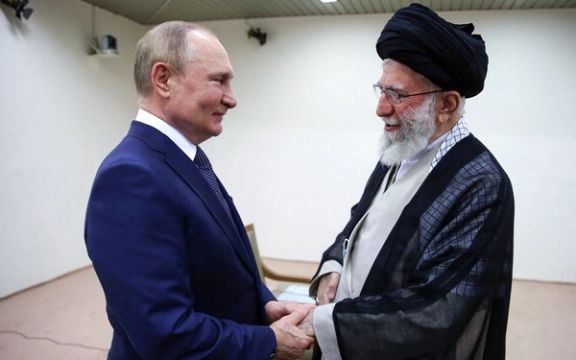
The think tank argued that triggering the snapback mechanism forces the issue of Iran among the signatories of the JCPOA and send a clear message about the international community’s stance on the regime’s nuclear program
Strengthening security and intelligence partnerships with key powers surrounding Iran, including Azerbaijan, Saudi Arabia, the UAE, Jordan, and Israel, was also suggested as a means to enhance the UK’s position in dealing with the Islamic Republic.
According to a report by The Times, UK diplomats are in talks with western allies -- France, Germany and the United States -- about reimposing sanctions on Iran amid warnings that the country is a threat to British interests “at home and abroad”.
This year, British police and the security services said they had foiled 15 plots by Iran to either kidnap or kill British or UK-based individuals it considers “enemies of the regime”.
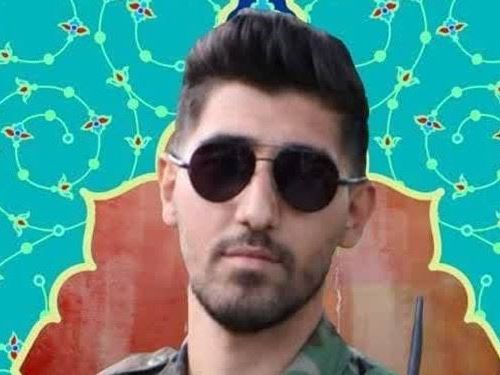
The IRGC says one of its Basij militia members was attacked and killed in the northwestern city of Tabriz.
In a statement on Sunday, the IRGC, or Revolutionary Guards Corps, identified him as a member of the Razavioun neighborhood patrol, named Amir Hosseinpour, claiming he was attacked by an assailant during a patrol mission and died four days later.
The statement does not mention any further details about the incident, the arrest of the attacker and his possible motives.
The Razavioun neighborhood patrol is a joint initiative involving the Law Enforcement Force and the Basij militia. The regime claims it has been launched to provide security, but many believe that its main goal is to suppress and arrest protesters.
In this initiative, the religious city of Qom served as a testing ground in 2018. At that time Colonel Mohammad-Reza Movahed, deputy commander of the Qom Islamic Revolutionary Guard Corps, claimed the Razavioun patrol fights "theft, narcotics and hooliganism."
However, critics believe that the purpose of creating such parallel activities is the widespread presence of regime forces in the neighborhoods.
Several military and paramilitary forces have been killed in Iranian cities amidst the uprising in recent months.
After the protests following the death in custody of Mahsa Amini and the deadly and violent suppression of protesters, attacks on military and law enforcement forces, as well as clerics have increased significantly.
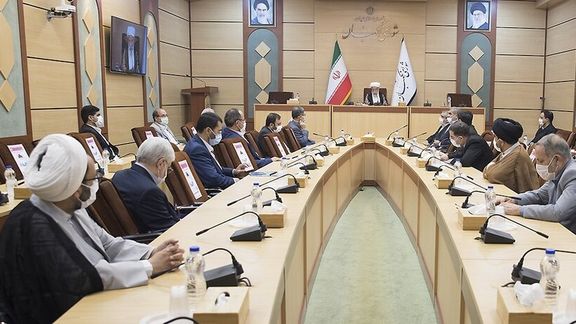
Iranian media and politicians continue the debate about whether Iran's disenfranchised reformist groups will take part in the upcoming parliamentary elections.
At the same time many acknowledge that elections are meaningless in Iran as long as the hardliner Guardian Council determines who should run for office.
The media say less than eight months before the elections, the conservatives have already started campaigning while there is no sign of election-related activities among the reformists.
Several reformist figures have pointed out that considering the precedence set during the latest elections in Iran in 2020 and 2021, no well-known reformist figures will be allowed to run. Some including pundit Saeed Hajjarian have even called for boycotting the elections.
Moderate political analyst Gholamali Rajaee has told conservative website Nameh News that "No decision has been made yet to boycott the elections, but perhaps non-participation will be a choice for voters." He explained that "If reformist voters cannot find the right likeminded candidates, they may decide not to take part in the election all together."
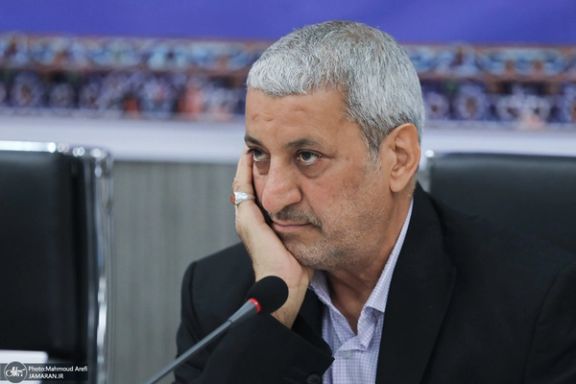
But the issue goes much farther than reformist voters. Both in 2020 and 2021 when mostly hardliners were approved to run, vast segments of the population stayed home, delivering two of the lowest voter turnouts in Islamic Republic’s history.
According to Nameh News, some Iranian conservatives believe that the reformist camp has been radicalized after the election of Azar Mansoori in June as the leader of the Reform Front, an umbrella organization that exercises influence among reformist groups and parties.
Rajaee said that the reformists might come to the conclusion that their candidates will not be allowed by the Guardian Council to run for the election. "When they do not have anyone to elect, naturally, they conclude that their participation will be useless," he said, adding that some of the conservative leaders expect reformists to take part in the election and accept to acknowledge that they have lost the election to conservatives. That is not logical, he said.
"If the reformists do not accept such a deal, then the conservatives brand them as boycotters and the advocates of regime change. They have said that before, and the may say it again," Rajaee argued.
Meanwhile, conservative activist Gholamali Jafarzadeh Imenabadi said that "If the reformists actively take part in the election, the conservatives will have no choice other than forging coalitions to stand against them."
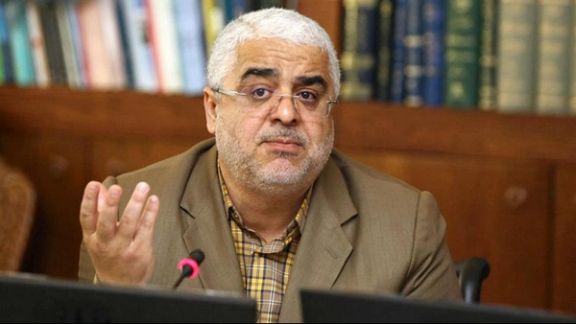
Stressing that the conservatives have already began campaigning, Imanabadi said that some of their leaders have started visits to provinces to organize likeminded political groups ahead of the elections. However, he pointed out that the conservatives might find it hard to create some kind of accord among various groups. Imenabadi added that there are already several conservative and hardliner coalitions with their own separate agendas and some of them do not realize the need to come to some sort of agreement with others.
"They can still further their agenda if reformists and moderate groups do not enter the elections in an organized way. But if they do, then the conservatives will have no choice other than forming strong coalitions.
Along the same lines, in an interview with Nameh News, Hamid Reza Taraqqi, an Islamic Coalition Party member spoke about former Majles Speaker Ali Larijani's probable candidacy and said: "If he is serious about nominating himself he should update his views about revolutionary behavior and values and get ready for a new judgment of his merits by conservative voters and politicians.
Many conservatives have said earlier that Larijani does not have a voters’ base and first of all he needs to decide who he wants to represent, the reformists, the moderates or the conservatives. Larijani was a conservative politician throughout his career, but he got close to moderates during the presidency of Hassan Rouhani (2013 – 2021), and his candidacy was rejected by the Guardian Council for the 2021 presidential election.

Some US lawmakers and others are frustrated about the Biden administration’s silence on the case of its Iran envoy as Tehran's media disclose more information.
National Security Adviser Jake Sullivan, who appeared on CBC News’ "Face the Nation" on Sunday, refused to offer any transparency regarding the FBI investigation of Robert Malley’s mishandling of classified information and his dismissal as the US special envoy for Iran.
“I can't speak to the current circumstances," he said. Instead, he expressed admiration for Malley, saying, " Rob Malley has served multiple administrations faithfully and well. He is a public servant. He is a diplomat. He is engaged in high level, high stakes diplomacy for a long time. And he's someone who a lot of us, including myself, have deep respect for."
He noted that the US has had “indirect contact” with Iran to try to get a deal that could get the American citizens imprisoned in Iran released, adding that “With respect to the nuclear program, we're not close to any kind of a deal.”
Rep. Michael McCaul (R-TX), the chair of the House Foreign Affairs Committee who issued Thursday an ultimatum to the State Department to come clean about the suspension of Malley, also appeared on the show with a tone very different from that of Sullivan.
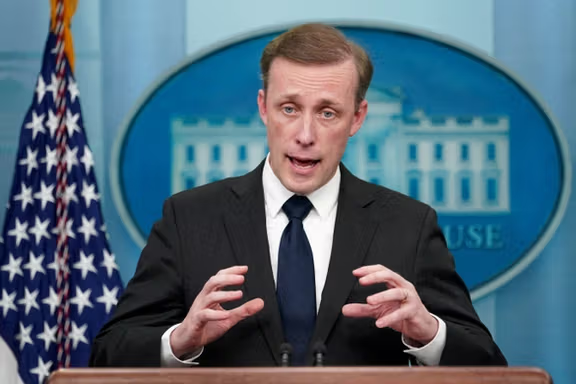
“We sent a letter. We were rebuked. We have been given no answer about his status,” he said, emphasizing that “this is a top negotiator to Iran” with access to “highest classified secrets.”
"We are giving a deadline of July 25th to have the diplomatic security and management secretary come in and brief us in a classified space,” he said, warning of a “worst case scenario” in which Malley “transferred intelligence and secrets to our foreign adversaries.” “There's no proof of that, but if he did, that would be treason in my view.”
McCaul wrote twice in the past two weeks to Secretary of State Antony Blinken demanding information. The Senior Republican lawmaker was rebuffed the first time.
McCaul asserted that now “the Committee expects prompt and full compliance with its requests, and it will not tolerate obstruction of its oversight of this national security matter.”
Capitol Hill Republicans are growing increasingly frustrated with the Biden administration’s unwillingness to share information about the issue. Adding insult to injury, the Iranian regime’s media is trickling details surrounding the case and infuriating US lawmakers, who believe the Islamic Republic knows more about the issue than they.
In its second article published on Sunday, Tehran Times, a publication controlled by the Iranian regime, provided more astonishing details about Malley's situation.
Tehran Times quoted an unnamed source at the US State Department as telling them that “the main problem of Malley stems from his secret talks with Iranian Ambassador to the UN Saeed Iravani and his meetings with some Iranian American figures in the US.”
According to the article, these people include Ali Vaez, Malley’s former right-hand man at the Crisis Group; Vali Nasr, a professor at Johns Hopkins School of Advanced International Studies; and Trita Parsi, the current employer of Malley’s son at the Quincy Institute, and the founder and former president of the National Iranian American Council (NIAC), which is recognized by Iranians living in the United States as the lobby of the Islamic Republic. “They are Iranian Americans whose presence in Democrats’ Iran diplomacy during the Obama and Biden administrations is quite clear.”
“Thanks to their connection with the former Iranian negotiators, some of whom are still present in the current negotiating team, they play the role of broker and middleman between Tehran and Washington,” Tehran Times said.
Another claim made by the article was that Malley had been in full coordination with the State Department in promoting his negotiation strategies and tactics and his dismissal was not due to a disagreement between the Secretary of State team and the National Security Advisor team, saying that “Perhaps the reason why Secretary of State Tony Blinken did not meet and talk with Malley is because the top diplomat does not want the scope of this scandal to expand and tarnish his reputation.”
On Thursday, a group of 18 Republican senators called for a probe into the murky circumstances surrounding the State Department’s handling of Malley’s security clearance investigation. Spearheaded by Senator Bill Hagerty (R-TN), the group sent a letter to Diana Shaw, the acting inspector general of the Department of State, outlining specific questions that must be answered “no later than Friday, July 21, 2023.”
Congress was kept in the dark about Malley having been suspended at least since early May and was only informed about it when his replacement was announced. Malley’s suspension was first reported by Iran International June 29, and formally announced the following day by Matthew Miller, the spokesperson for the US State Department, calling it "a leave of absence”. However, it is believed he had been suspended as early as April.